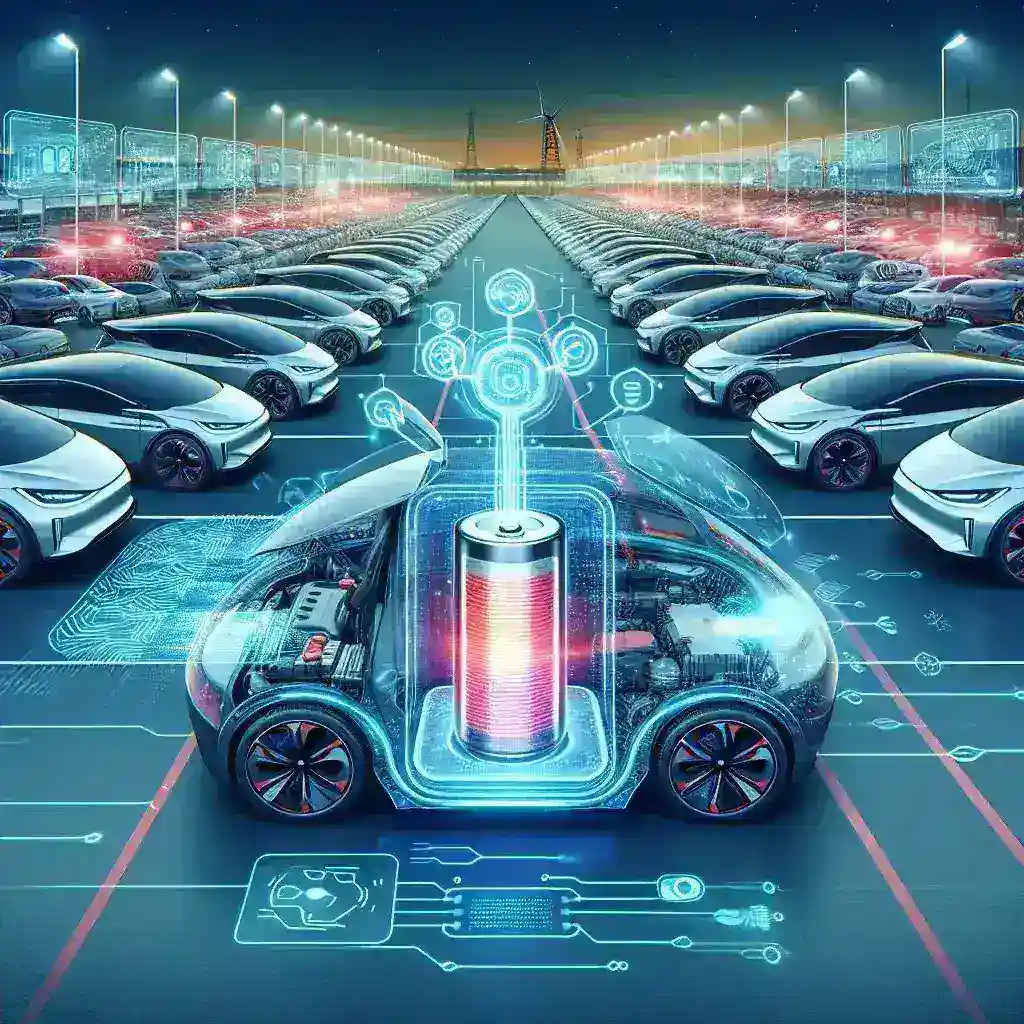Introduction
As the automotive industry shifts towards a more sustainable future, Ford is at the forefront of innovation, particularly in the realm of electric vehicles (EVs). The deployment of AI optimized battery management software is a testament to this commitment. This article delves into how Ford is integrating advanced technology within its U.S. EV fleet, examining the implications for efficiency, performance, and consumer experience.
The Importance of Battery Management in EVs
Batteries are the lifeblood of electric vehicles, driving their performance and sustainability. Efficient battery management is crucial for:
- Maximizing battery lifespan
- Enhancing vehicle range
- Ensuring safety and reliability
With the rise in EV adoption, the need for advanced battery management systems has become increasingly critical. Ford’s innovative approach aims not only to improve the functionality of its electric fleet but also to set a new standard in the industry.
Understanding AI Optimized Battery Management
The AI optimized battery management software developed by Ford leverages machine learning algorithms to monitor and manage battery performance dynamically. Here’s how:
- Real-Time Data Analysis: The software continuously analyzes battery health, temperature, charge cycles, and usage patterns.
- Predictive Maintenance: By predicting battery degradation, the system can suggest maintenance before issues arise, thereby preventing costly breakdowns.
- Adaptive Charging: The AI adjusts charging rates based on user behavior and environmental conditions, enhancing battery life and efficiency.
Historical Context: The Evolution of Ford’s Electric Vehicles
Ford has a rich history in the automotive sector, transitioning from traditional combustion engines to electrification over the past few decades. The launch of models like the Ford Mustang Mach-E and the upcoming F-150 Lightning showcases Ford’s commitment to EV innovation. The integration of AI technology reflects a broader industry trend towards smart, connected vehicles.
Looking Ahead: The Future of Ford’s EV Fleet
As Ford continues to expand its electric vehicle lineup, the role of AI-optimized battery management will be pivotal. Industry experts predict that:
- By 2030, EVs will comprise a significant portion of Ford’s sales.
- Improved battery technology will lead to longer ranges, making EVs more appealing to consumers.
- The integration of AI will facilitate smarter logistics and fleet management, optimizing performance across all models.
Pros and Cons of AI Optimized Battery Management
Pros
- Enhanced Efficiency: AI allows for smarter energy management, improving the overall efficiency of the vehicle.
- Increased Longevity: Predictive maintenance and adaptive charging extend battery life, reducing long-term costs for consumers.
- Improved User Experience: Drivers benefit from features like range prediction and maintenance alerts, enhancing convenience.
Cons
- Complexity: The advanced technology may introduce complexity that not all users are comfortable with.
- Dependence on Software: Technical issues or software malfunctions could lead to significant performance setbacks.
- Data Privacy Concerns: The collection of real-time data may raise privacy issues among consumers.
Real-World Examples of AI Implementation
Ford’s deployment of AI optimized battery management is not just theoretical; it’s already making a difference in practical settings. For instance, a pilot program within the fleet has demonstrated:
- A 15% increase in energy efficiency during peak charging times.
- Significant reductions in maintenance costs by identifying issues before they escalate.
- A positive response from users regarding the ease of accessing smart features via the FordPass app.
Cultural Relevance and Consumer Impact
The movement towards electric vehicles resonates with a growing consumer base prioritizing sustainability. Ford’s advancements position it to capture the interest of environmentally conscious buyers, aligning with global efforts to reduce carbon footprints. The integration of AI not only boosts performance but also establishes Ford as a leader in the green technology space.
Expert Insights
Industry analysts have lauded Ford’s initiative, with many experts noting:
“Ford’s use of AI in battery management is a game-changer. It’s not just about making electric vehicles; it’s about ensuring they perform at their best throughout their lifespan.”
Conclusion
As Ford embarks on its journey of deploying AI optimized battery management software in its U.S. EV fleet, the implications extend beyond just technology. It signifies a commitment to innovation, sustainability, and consumer satisfaction. With the potential to redefine the electric vehicle landscape, Ford is not just keeping pace with industry trends; it is setting them.

Leave a Reply